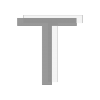organisation_finanzierung_text
einleitung
The Institute of Economic Affairs (IEA) is the oldest British free-market think-tank. It was founded by Antony Fisher in 1955 and its self-description is: "UK's original free-market think-tank". Its aim is “to improve understanding of the fundamental institutions of a free society by analysing and expounding the role of markets in solving economic and social problems.” The IEA became very influential in the UK, with Nobel Prize-winning economist Milton Friedman believing its influence to be so strong that “the U-turn in British policy executed by Margaret Thatcher owes more to him (i.e., Fisher) than any other individual.” The IEA played a significant role in advocating a “hard” Brexit and was named by whistleblower Shahmir Sanni as one of nine organisations based in and around Westminster’s 55 Tufton Street that coordinated a campaign for a “hard” exit from the EU.
Organisation/Finanzierung
